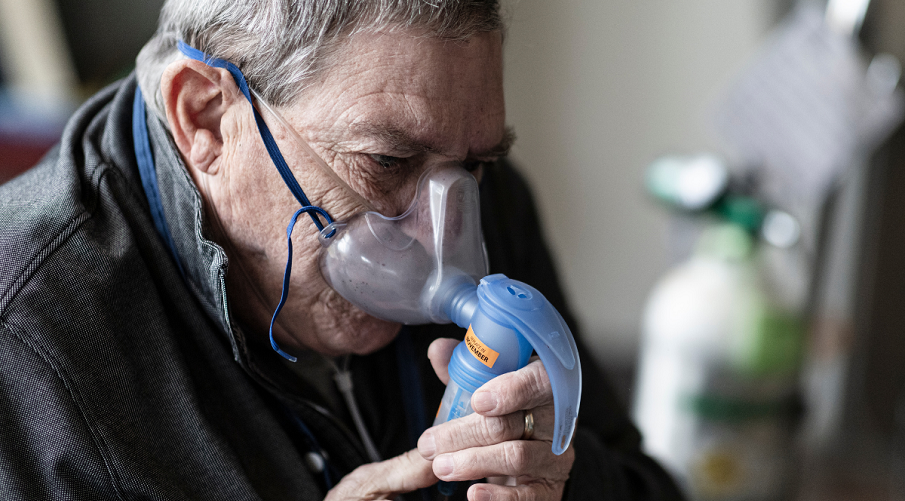Mesothelioma is incredibly rare and almost exclusively associated with exposure to one specific material (asbestos).
But for those who have it, it’s utterly devastating.
Mesothelioma is an especially aggressive and deadly form of cancer, and one that’s fairly resilient to most types of treatments.
While there is no cure for mesothelioma, there is hope for those who have it.
If you catch mesothelioma early enough and use a combination of treatment methods like surgery and chemotherapy, you may be able to mitigate most of the symptoms of mesothelioma and continue living your life.
Ideally, you’ll be in a position where you can correctly identify mesothelioma early.
So how can you make sure this is the case?
Asbestos and Mesothelioma
First, understand that nearly all cases of mesothelioma arise as a result of exposure to asbestos.
Thankfully, asbestos isn’t used very much anymore, and people are generally aware of the risks associated with it.
Still, if you’ve worked in an environment featuring asbestos, you could be at risk.
If you know or suspect that you’ve been exposed to asbestos, even if it was only once and in a limited capacity, it’s imperative that you take the risk of developing mesothelioma seriously.
It takes years, and often decades, for mesothelioma to develop after asbestos exposure, so you may not notice any symptoms for a long, long time.
To make matters worse, many of the earliest symptoms are mild and hard to notice, making this disease incredibly difficult to detect early.
Still, if you remain vigilant and proactive, there’s a good chance you’ll be able to take action in response to this disease before it starts to spread.
Mesothelioma Symptoms

Mesothelioma symptoms vary, depending on your specific type of mesothelioma, its stage of development, and countless other variables.
That said, some of the most common early stage symptoms include:
1. Shortness of breath. We all get short of breath when exercising vigorously, but if you find yourself breathing heavily routinely, it could be a bad sign.
2. Chest pain. Similarly, persistent chest pain is associated with mesothelioma.
3. Unexplained coughing. Periodic coughing is totally normal, but if you have a cough that doesn’t seem to go away, it could mean that mesothelioma has taken hold in your lungs.
4. Fatigue and body aches. General fatigue and body aches are also common in the early stages.
5. Blood clots. Some people suffer from blood clots as a result of mesothelioma.
6. Fluid buildup. Pleural effusions, or fluid buildup in the lungs, are a common early sign of pleural mesothelioma.
7. Low grade fever. You may also notice a low grade fever.
8. Lower back pain. Some people with mesothelioma experience back pain as an early symptom.
9. Unusual weight loss. Unexplained or unusual weight loss may also be a sign of this disease.
If you notice any of these symptoms and reasonably suspect you may have been exposed to asbestos in the past, it’s important to make an appointment with your health care provider right away.
Doctors may recommend imaging tests, such as chest X rays or CT scans, to identify signs of mesothelioma.
If they detect mesothelioma, they can likely begin treating it.
The Power of Catching Mesothelioma Early
There is no way to cure or completely eradicate mesothelioma, but this is a disease that can be controlled if it hasn’t spread too far.
In contrast, if the disease is allowed to proliferate for years before treatment is undertaken, it may be difficult or impossible to get under control.
This is why it’s so important to take your health seriously and make extra efforts to reduce your mesothelioma risk profile.
What to Do If You’ve Been Exposed to Asbestos
If you know or think that you’ve been exposed to asbestos, these are the most important steps to follow:
1. Carefully monitor your health.
Pay very close attention to your health.
As we’ve seen, mesothelioma symptoms are often so mild they go unnoticed.
You’ll need to be especially attentive if you want to detect the subtle changes in your health that emerge as a result of this disease.
2. Talk to your doctor about proactive imagery screenings.
The earlier you can identify and start treating mesothelioma, the better, as is the case with most cancers.
That’s why it’s a good idea to talk to your doctor about undergoing imagery based screenings to see if you can detect the presence of mesothelioma.
3. Work with a lawyer.
Depending on the nature of your asbestos exposure, you may be entitled to benefits or compensation for your mesothelioma treatment.
Accordingly, it’s important to talk to a lawyer about your options.
What You Should Remember?
Noticing and treating mesothelioma early doesn’t guarantee that you’ll eliminate this disease and thrive, but it does greatly increase your chances of living a long and healthy life, despite this disease.
If you’ve ever interacted with asbestos, you need to be especially cautious and prudent, talk to your healthcare providers to discuss your options.






